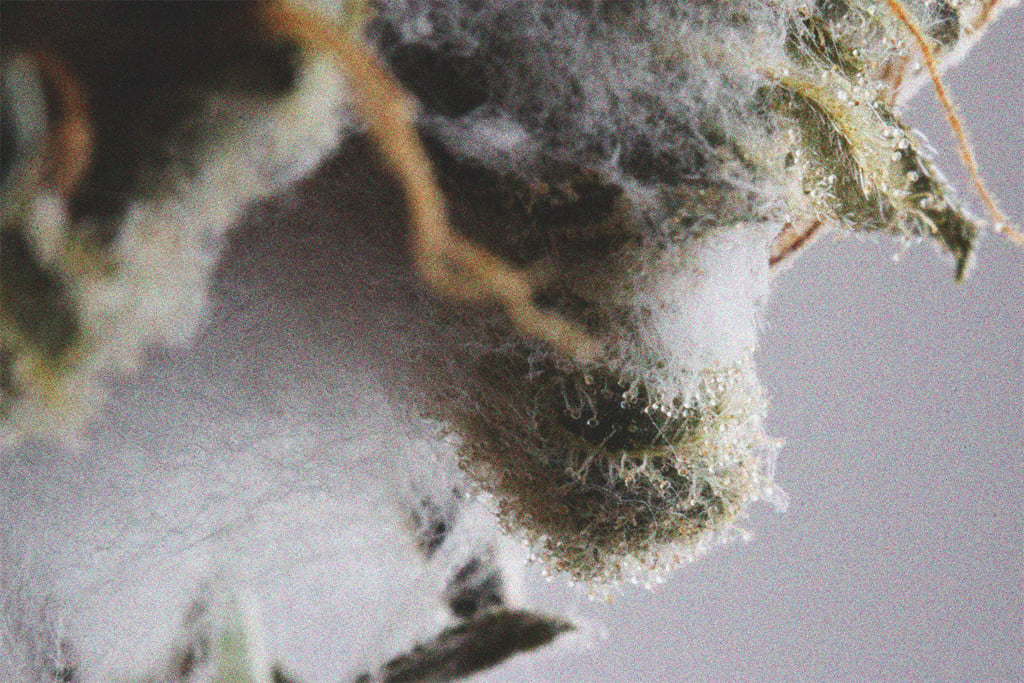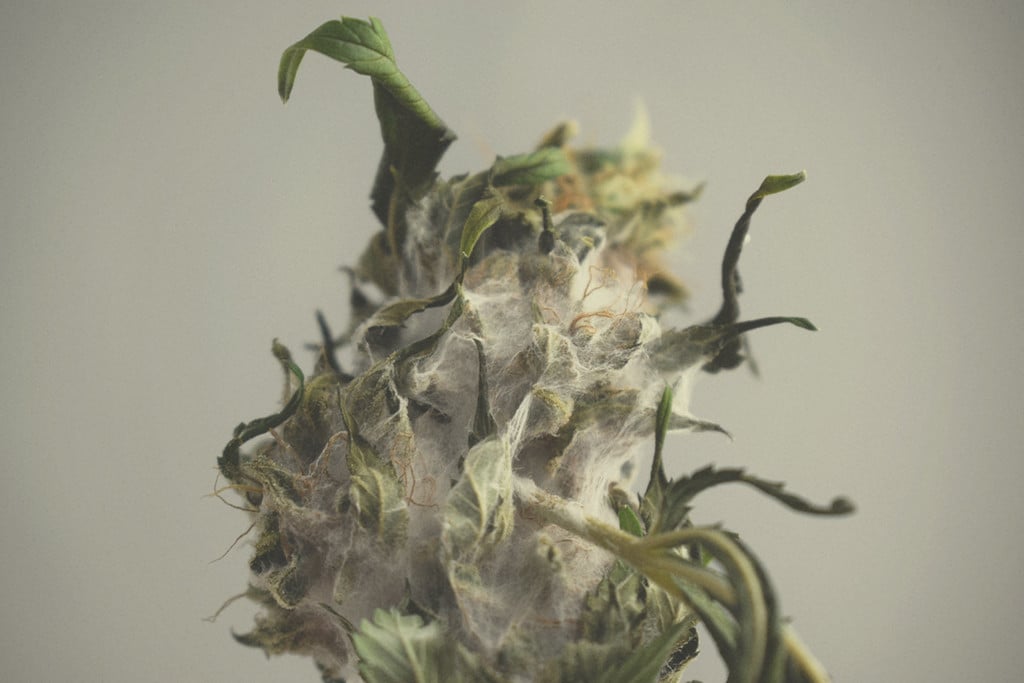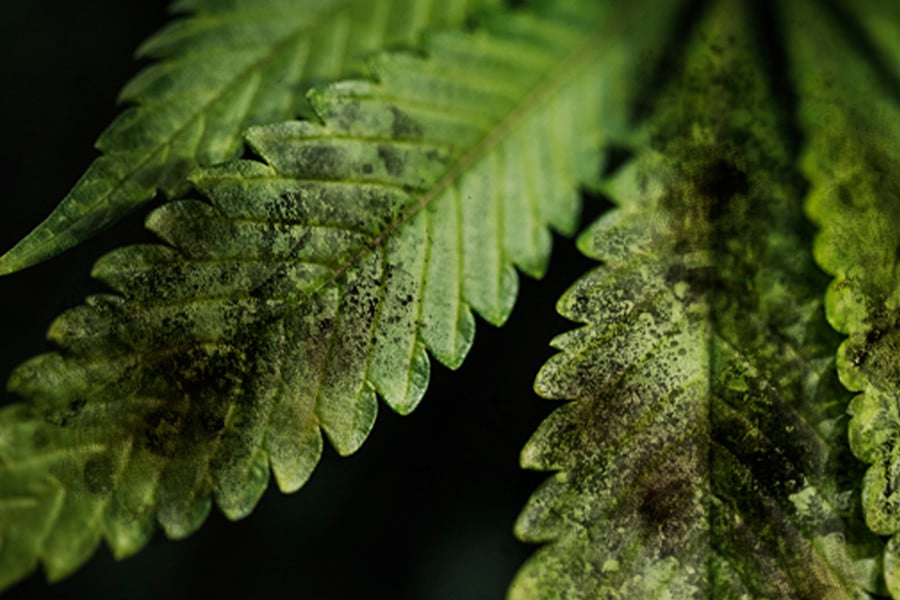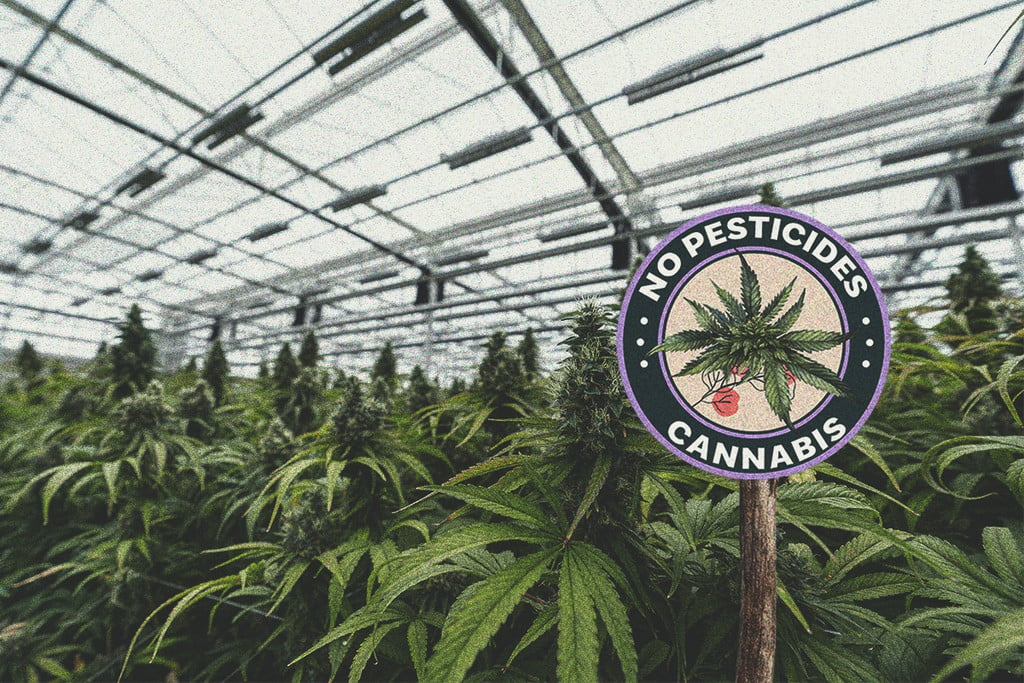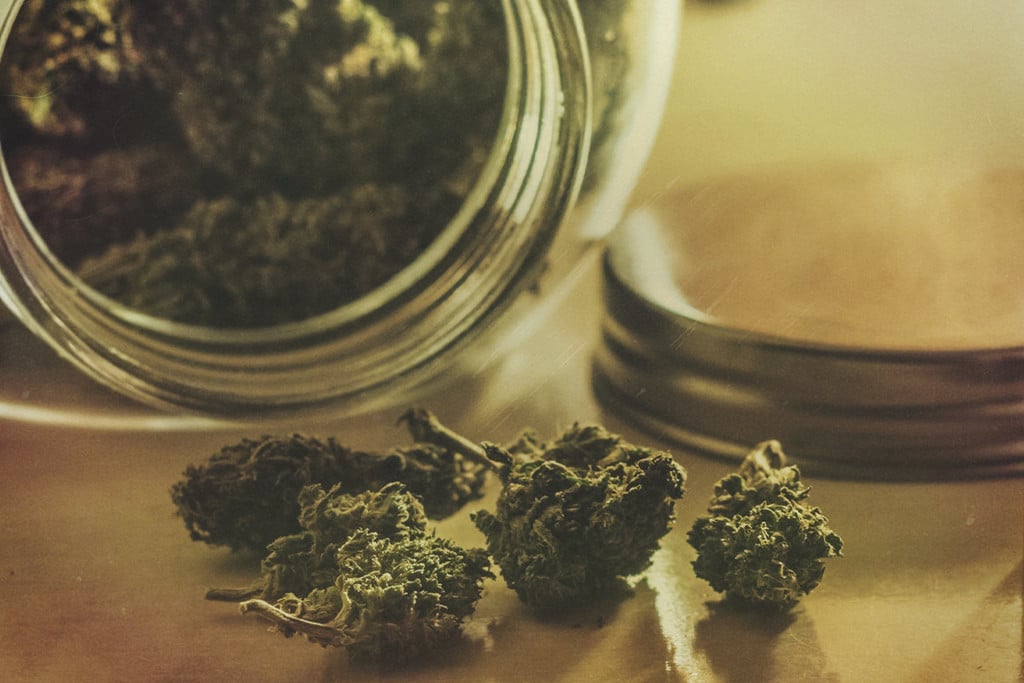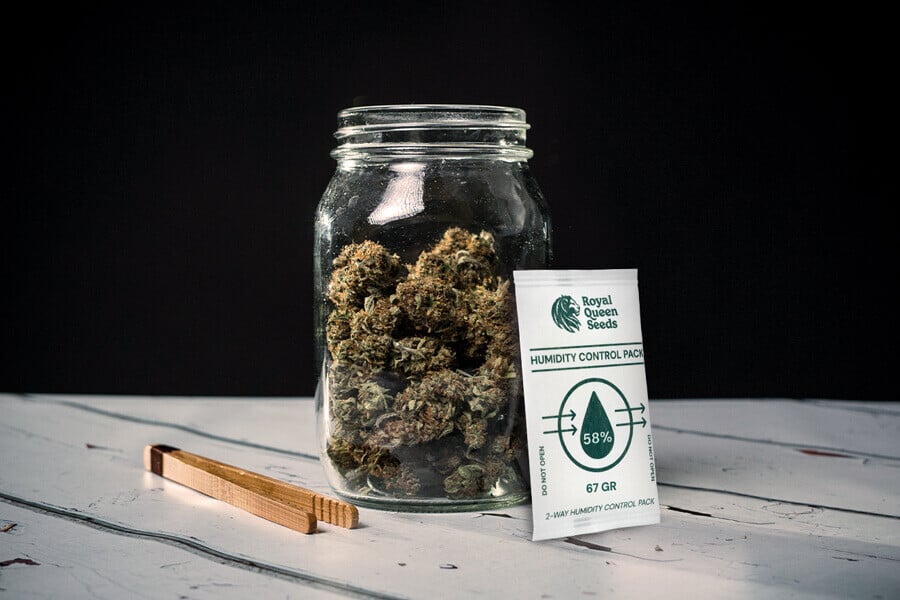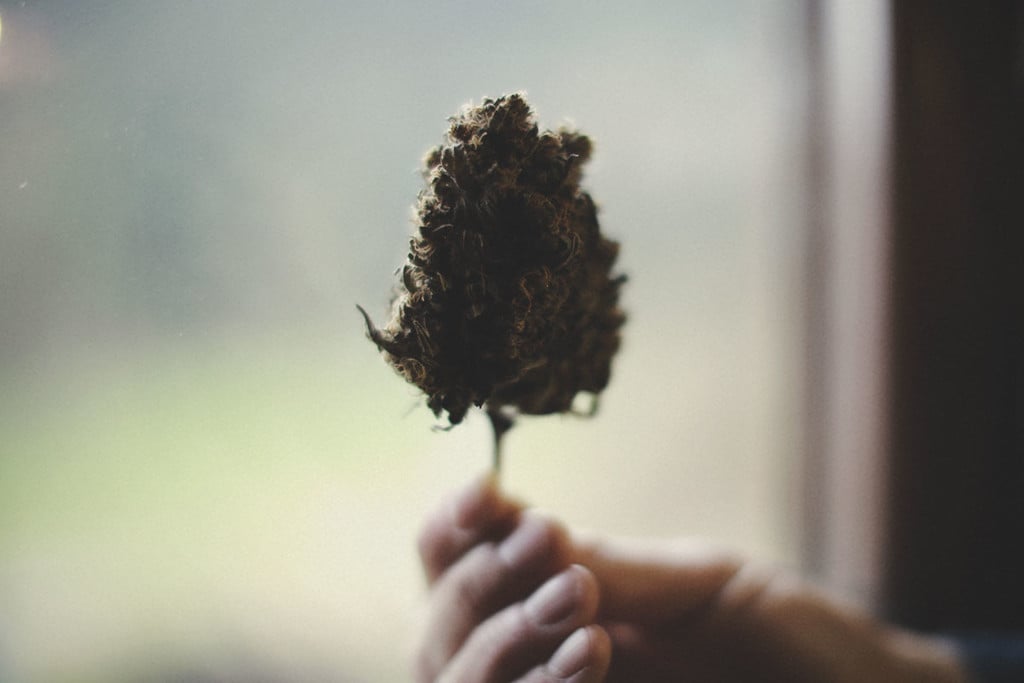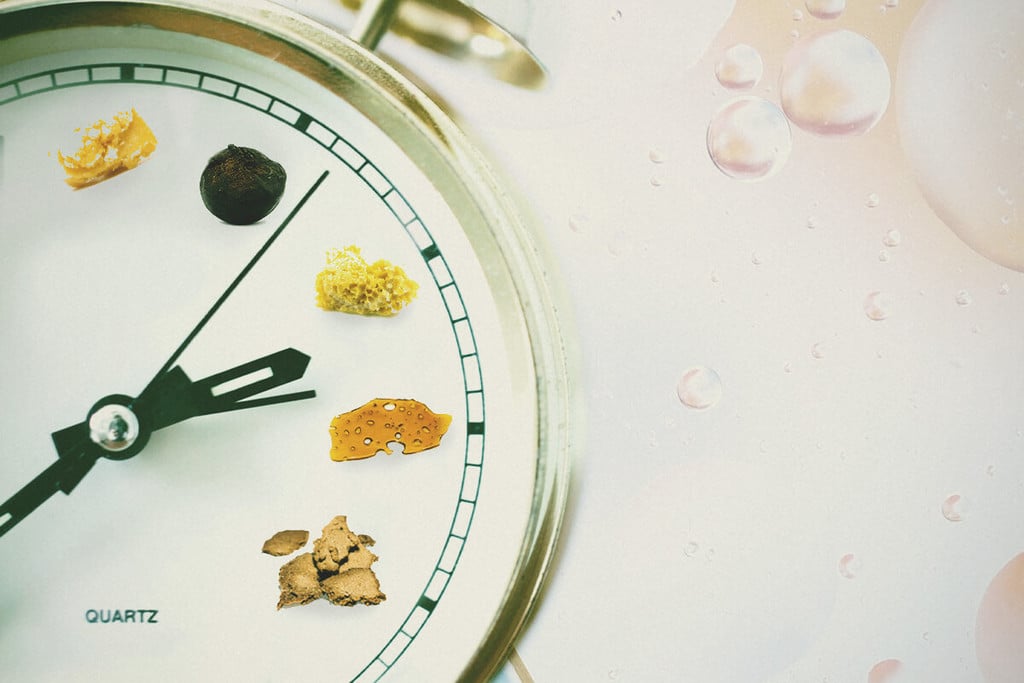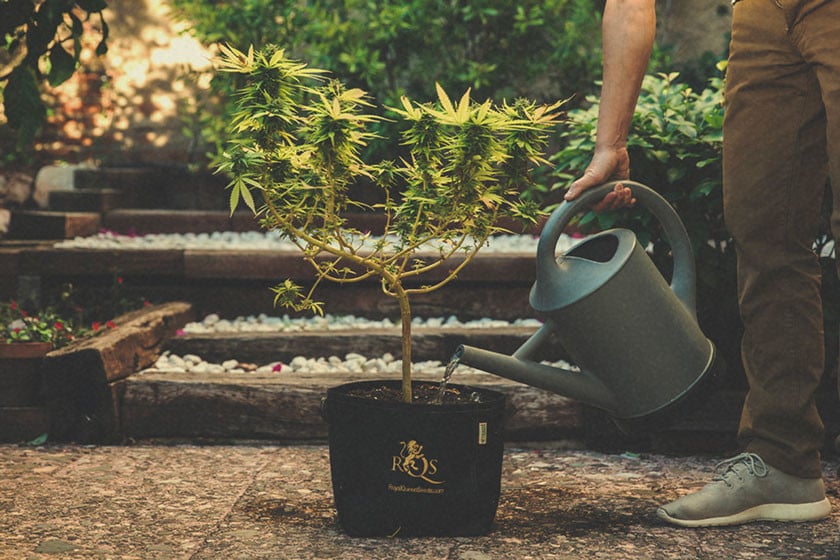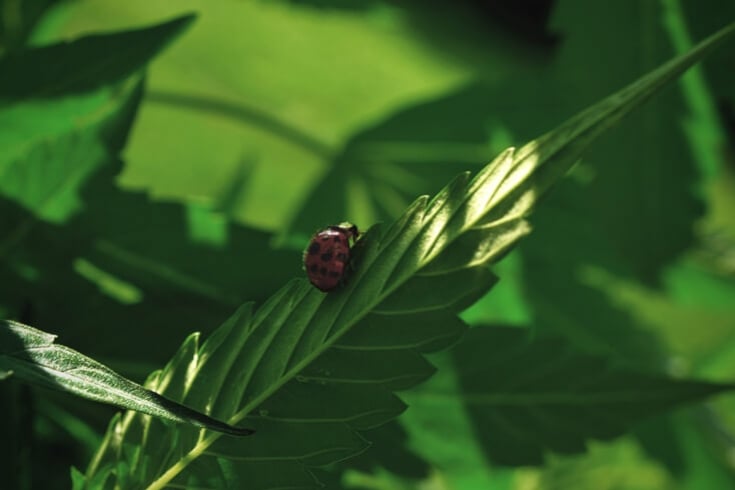.
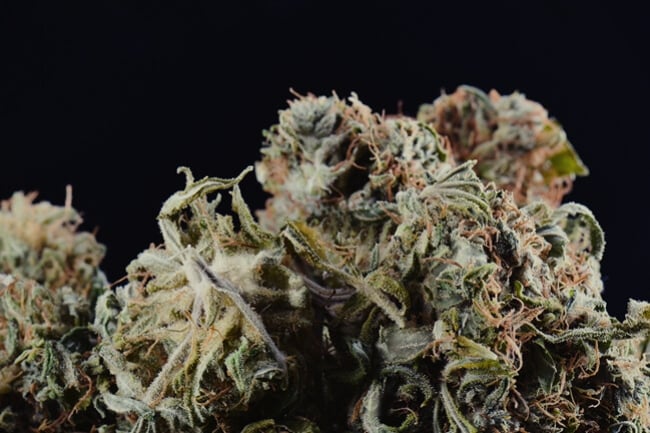
Contaminated Cannabis: Identification and Potential Dangers
Contaminated weed is everywhere, and it can be relatively harmless, or extremely dangerous. So it's best to know what contaminants cannabis could contain, how to spot them, and what to do about it. Find out all you need to know in our guide to contaminated cannabis.
Unfortunately, most of the cannabis that you buy is in one way or another contaminated. Whether it’s a legal or illegal product, it probably contains compounds you don’t want to consume. All pose some danger, and some can be life-threatening.
In this article, we explore the many different types of cannabis contamination, and what, if anything, you can do about it.
Contents:
What Is Contaminated Weed?
Contaminated weed is, essentially, weed that contains anything other than what naturally occurs on and in the cannabis plant. Often, the word contamination brings to mind highly toxic chemicals or very dangerous diseases, but contaminated cannabis might simply be cannabis that’s dusty. On the other hand, it could be that the bud has either accidentally or deliberately become contaminated with something more nefarious.
Contaminated cannabis is often the result of poor cultivation, processing, and storage practices, but it can sometimes also be the result of people trying to make their cannabis shinier, stronger, or heavier than it really is. Moreover, it might be the result of some other being’s interference, such as a species of fungus.
Some types of contamination are visible, which makes it easy to decide what to do. But other types, including some of the most dangerous, elude the eye, and might require laboratory testing to detect.
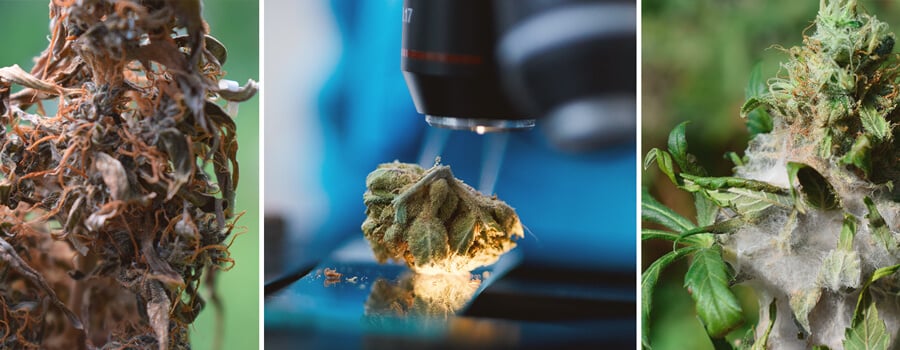
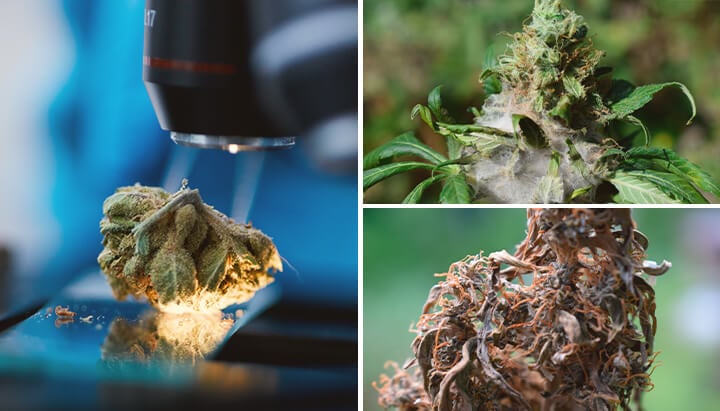
Is Contaminated Weed Dangerous?
It can be. At the very least, contamination will always detract from the quality of cannabis, and even the least harmful of contaminants can present some danger and discomfort if consumed in large quantities.
Other contaminants, such as fungal spores and toxic chemicals, can be extremely dangerous, and in rare occasions even fatal. What’s more, many contaminants can be highly carcinogenic. And while some cannabis consumption methods (e.g. smoking) are in themselves carcinogenic, it still makes sense to mitigate the risks as much as possible.
Cannabis that is contaminated with endocrine disruptors has even been shown to cause fertility issues[1]. And finally, some cannabis is laced with synthetic THC or opioids to make it seem highly potent. These substances can be extremely potent and have devastating side effects, in addition to being very addictive.
So, it’s in your best interest to consume cannabis that has not been contaminated with anything. In most cases, chances are that contamination will just give you a sore chest, but the consequences could be much worse than this, and the risk isn’t worth it.
Cannabis: Causes of Contamination
Understanding the causes of cannabis contamination can help you to avoid it, to some degree. Whether it’s avoiding contamination in your own grow operation, or avoiding picking up contaminated weed elsewhere, knowledge is power!
Fungal Infection
Cannabis buds are susceptible to fungal infection, both during cultivation and during the drying/curing stages. If fungal growth becomes rampant to the point of being visible, then it renders the bud unusable. However, it may be that the growth remains minimal and isn’t immediately apparent, which means you might unwittingly consume it.
One important thing to note: while smoking bud infected with fungal spores is dangerous, vaping it has a much greater chance of causing harm. One study concluded that, even at low concentrations, vaping fungal spores is likely to cause fungal pneumonia[1]. So if you vape cannabis flower, be especially vigilant about contamination.
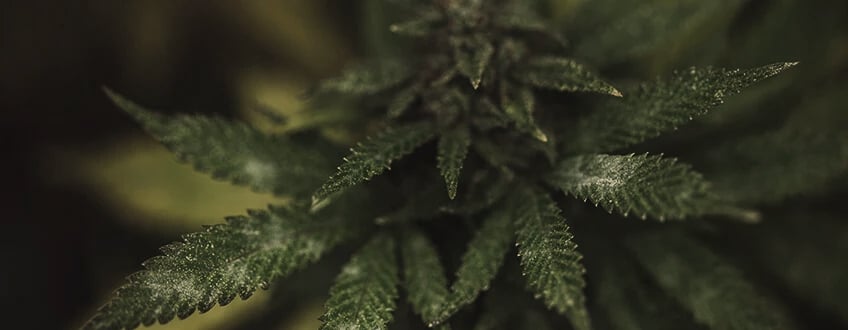
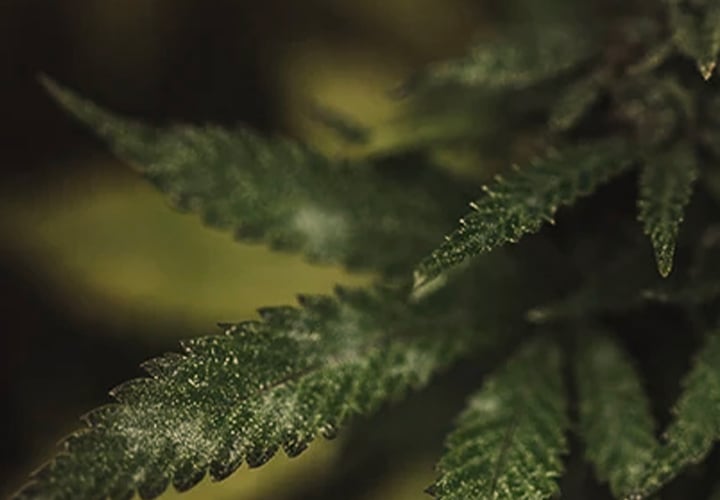
- Powdery mildew: Powdery mildew encompasses various species of fungus that can grow on cannabis flowers and, as the name suggests, create a powder-like covering. Inhaling these spores (in large quantities) comes with the risk of mould balls forming in your lungs, which requires surgery to remove.
- Botrytis: Also known as grey mould, this is extremely common and often grows on rotting fruit and veg—you’re sure to have seen it. In most cases, the risk posed by this mould is low, but it can cause allergic reactions in some people.
- Aspergillus (mycotoxin-producing): This mould can cause aspergillosis in people who already have lung conditions, though it is rare in healthy people. It contains mycotoxins, which when inhaled can cause both acute and chronic illnesses. It also contains aflatoxins, which are carcinogens and mutagens.
- Penicillium: This common mould often produces allergic reactions in people, with symptoms similar to hay fever.
Bacterial Infection
Mould isn’t the only culprit behind organically infected cannabis—we also have bacteria to contend with. As bacteria don’t produce spores, they are often destroyed by smoking, and thus don’t carry the same risks as fungus. That being said, handling and consuming infected cannabis can still transfer bacteria to your mouth by means other than inhalation, so it can still be perilous.
- Salmonella: This well-known bacteria commonly contaminates food, and can cause mild to serious food poisoning. It can also live in cannabis, and may have the same effects if you handle contaminated cannabis and then touch your mouth or food afterwards.
- Enterobacter: This bacteria can cause respiratory infections, which if untreated can be dangerous. If you inhale through a joint that contains infected cannabis, then there is always a danger that you will inhale live bacteria and infect yourself.
- Streptococcus: This common bacteria can cause infections that require antibiotics to treat. Symptoms can range from mild to severe.
- Klebsiella: This can cause intestinal and lung infections, and accounts for around one-tenth of pneumonia cases in hospitals. It is dangerous whether inhaled or ingested.

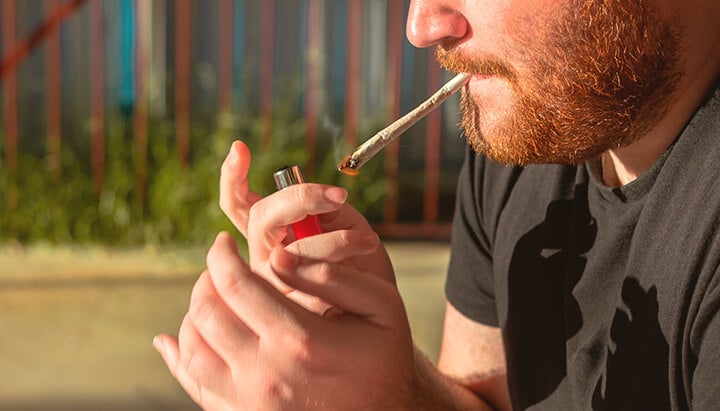
Heavy Metals
Heavy metals occur throughout nature. In low concentrations they tend to be harmless, but in high concentrations they can be fatal. Certain fertilisers contain heavy metals, which accrue over the lifetime of a cannabis plant, reaching dangerous levels by the time it is harvested.
- Cadmium: This is a carcinogenic chemical that can also cause bone weakening and kidney damage, among other problems. It is a common toxin in smoke and is highly dangerous.
- Arsenic: The infamous heavy metal. Symptoms of arsenic poisoning include vomiting, watery diarrhoea containing blood, encephalopathy, abdominal pain, and death.
- Lead: Poisoning from lead has a plethora of unpleasant symptoms including abdominal pain, constipation, headaches, irritability, memory problems, infertility, and tingling in the hands and feet. It can also cause irreversible and severe mental disability, accounting for 10% of mental disability of otherwise unknown cause.
Pesticides
Pesticides are very common in agriculture and horticulture, including within the cannabis industry (legal and illegal). Very often, these products remain on cannabis flowers and are then consumed by users, posing a number of dangers. One study found that 84% of legal products in Washington contained pesticides[1].
Pesticides, as well as often being carcinogenic, are also endocrine disruptors and neurological toxins.
- Carbaryl: This common insecticide is highly toxic and classified as a carcinogen. Smoking, vaping, or ingesting it is dangerous.
- Permethrin: This pesticide can cause allergic reactions on the skin and in the lungs, being potentially very dangerous for some people.
- Propargite: Though it is not thought to be severely dangerous to humans, at least in known quantities, it can cause extreme irritation to the eyes, nose, and mouth.
Dirt and Debris
Whether during the growing, drying, shipment, or storage stages, cannabis buds can accrue dirt and debris. Often, this is the least dangerous form of contamination, but it can still irritate the lungs of many people and cause allergic reactions in some.
- Dust and dirt: Poorly handled and stored cannabis will catch hold of some dust and dirt—it’s very sticky after all. In small quantities this is unavoidable, but it should be minimal.
- Insect frass: Frass is the name given to insect droppings. Indoor-grown weed should contain pretty much zero frass, while outdoor grown weed will probably contain more. It’s unclear whether its presence poses a danger, but you probably don’t want to find out.
- Cobwebs and spider mite silk: Cannabis plants can become covered in cobwebs and spider mite silk. In low quantities this shouldn’t be dangerous, but an abundant covering might irritate the lungs or cause an allergic reaction. Growers should clean any visible cobwebs or “silk” off their buds before passing it on.
- Bird droppings: If growing outdoors, then birds might poo on plants. The health risks of smoking bird-despoiled cannabis buds are unclear, but it's best to avoid it. If you’re sold weed covered in bird poo, the seller is lazy!
- Dead and live insects: Cannabis flowers might also host dead or even living insects. Again, in most cases these probably don’t pose a danger, but it might be unpleasant to discover creatures crawling around your bud.
- Insect eggs: Likewise, there might be insect eggs in your flowers. These, again, likely aren’t dangerous, but might be unpleasant.
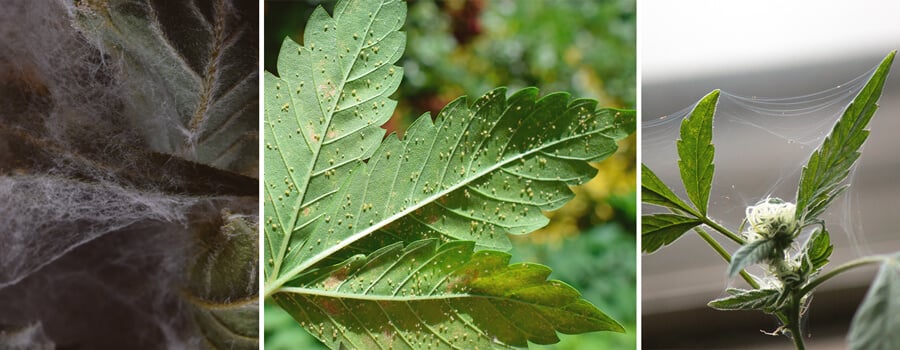
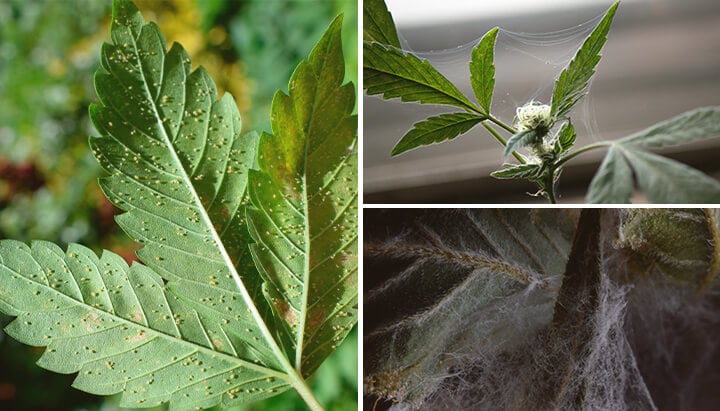
Laced With Drugs
Some illicit cannabis sellers will spray or lace their flowers with other drugs. This means that active drugs are contained within the cannabis flowers (other than natural cannabinoids). Usually, they do this to make their cannabis seem more potent than it really is.
Often, synthetic cannabinoids are used, which can be very dangerous. More recently, there has been a trend in the US of lacing cannabis with fentanyl. This is even more dangerous than synthetic cannabinoids as it’s an extremely potent opioid of which even miniscule amounts are enough to cause people to overdose and die.
Signs of Contaminated Weed
You might be asking yourself: “What does contaminated weed look like?”.
Well, many of the worst types of contamination aren’t visible and require lab testing. But some are, and you can identify them with your eyes and nose.
Obvious Signs of Contaminated Weed
Here are some clear signs that your cannabis is contaminated. The following list will specify whether a type of contamination can be removed or not.
- Frass: If you see small insect droppings (light or dark brown), then it’s dirty. But you can clean it!
- Dirt and dust: if it’s dirty or dusty, you should be able to see this, and you can clean it.
- Fungal threads: Fungal threads will look thin and probably dusty. They are very fine and might be plentiful. You should not consume this cannabis.
- Bacterial necrosis: If part of the bud is grey, black, or brown, wet, and rotting, it is probably being consumed by bacteria and should be discarded.
- Damp aroma: If it has a damp aroma, it’s probably contaminated with fungus and should be discarded.
- Chemical aroma: This might be hard to distinguish from the smell of terpenes, but sometimes not. If your cannabis smells like artificial chemicals, then it might be covered in pesticides or some other chemical. Depending on the chemical, it may or may not be possible to wash it off, so without lab testing, assume you can’t and discard it.
- Dry/chalky texture: Some moulds have a dry and chalky, dust-like covering or texture. This weed cannot be cleaned and should be discarded.
- Oil and hard black ash residue: If you find this sort of contamination on your cannabis, you should discard it.
- Sandy/powdery residue in packaging: This can have several causes and should be discarded, as it’s uncertain whether cleaning will work.
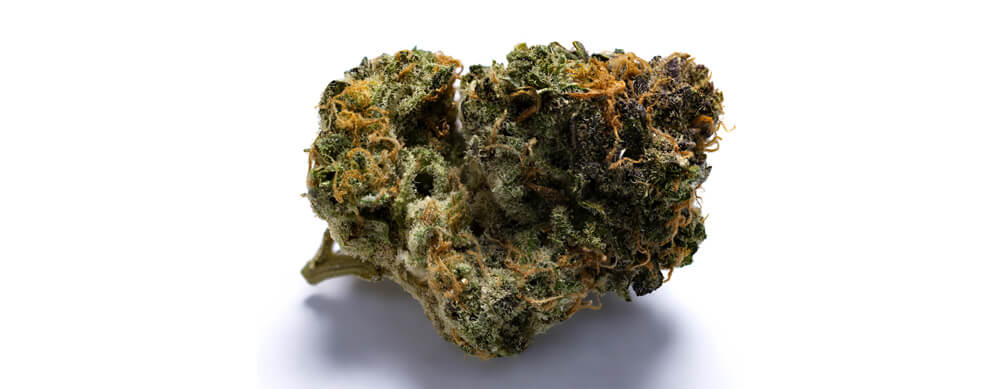
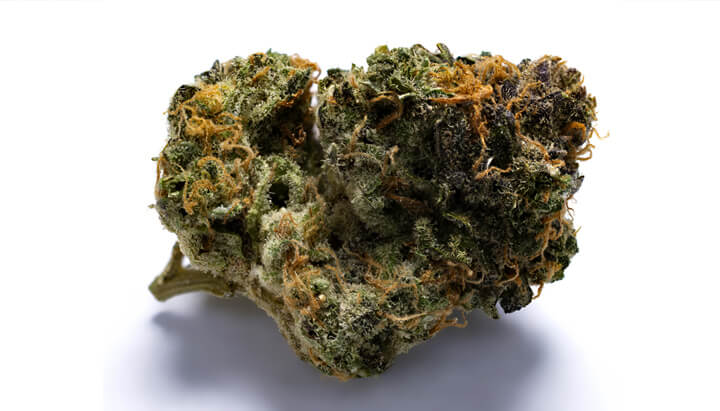
Invisible Signs of Contaminated Weed
Most other contaminants, especially chemical ones, are impossible to detect using your senses. Therefore, they require specialist testing, often in a lab. Aside from drug testing, you probably can’t conduct these tests at home.
Here are a few different types of contamination testing methods:
- Liquid chromatography: Pesticides
- Gas chromatography: Pesticides
- Inductively coupled plasma instrumentation: Heavy metals
- Drug testing
How to Avoid Contaminated Weed
There are ways to avoid or reduce the chances of consuming contaminated weed. However, unless you grow it yourself, you can never be entirely certain. Here are some tips.
- Shop at reputable dispensaries and coffeeshops: Look for proof of batch testing, as this demonstrates that other flowers from the same batch are "clean". Ask the staff at the establishment who they buy from and what practices they employ. Legally bought weed doesn’t necessarily imply it’s free from contamination.
- Grow your own herb: The best way to avoid contamination? Grow your own! This way, you know everything that goes into and onto your weed, and you remain in control.
- Avoid street dealers: Street dealers rarely know what's in or on their weed, unless they grow it themselves. If you buy from a trusted source who grows their own, then all good. Otherwise, the illegal market is flooded with contaminated cannabis.
- Conduct visual inspections: Though it’s by no means failsafe, you should visually inspect any weed you buy. This won’t save you from everything, but it can help you identify some of the more obvious signs.
How to Treat Contaminated Weed
While you can clean some types of contamination off of your buds, it’s best to just discard any bud you suspect to be affected, and get some more. Don’t risk your health!
But if you do want to use it, then you should try to be safer and use certain methods to mitigate harm.
- Wash your bud: Cleaning your bud can, at the very least, wash off dirt and debris.
- Use water pipes: There is some evidence to suggest that water filtration might catch some contaminants[1]. However, the science behind this is tenuous.
- Irradiate weed: Irradiating cannabis kills off mould and bacteria—it’s a method used to clean surgical equipment. However, irradiating bud is probably out of the reach of most people.
Contaminated Weed: A Potential Health Hazard
Contaminated weed is very common. In fact, it may be that most weed is contaminated in one way or another. All sources of contamination pose some risk, but chemicals, drugs, mould, and bacteria should be especially avoided, as they can cause serious health issues.
If you think your weed is contaminated, it’s best to discard it. Not getting high is preferable to becoming very unwell, so err on the side of caution and go without a smoke.
- Cannabis contaminants: sources, distribution, human toxicity and pharmacologic effects - PMC https://www.ncbi.nlm.nih.gov


























